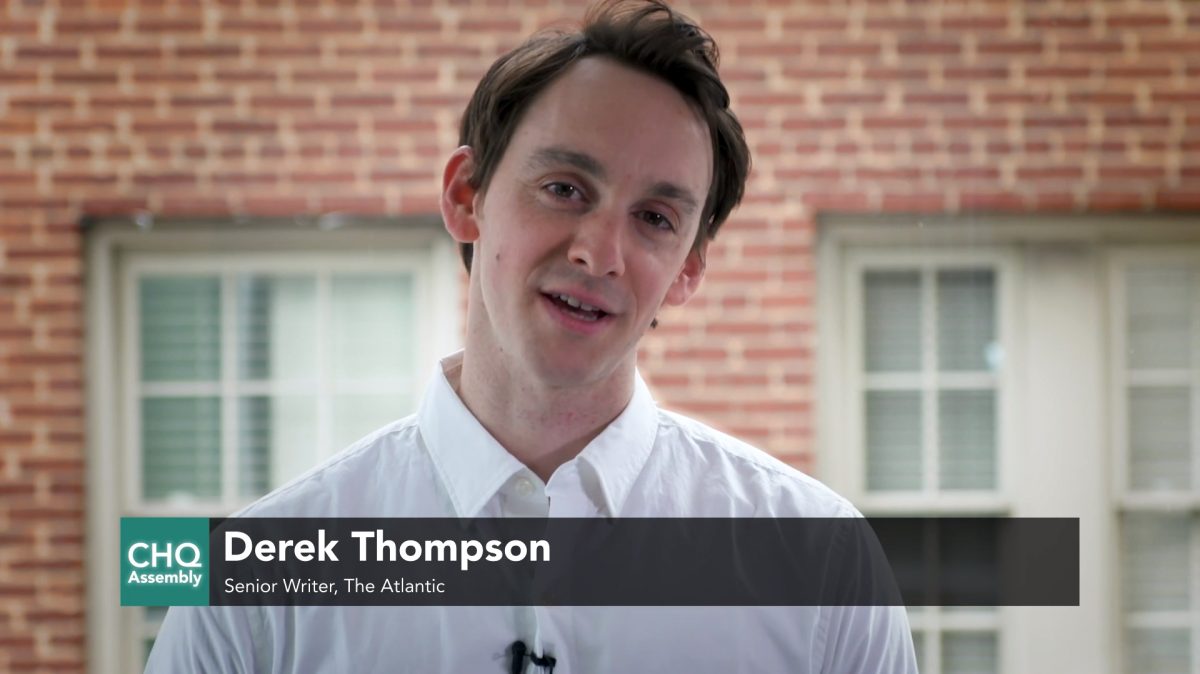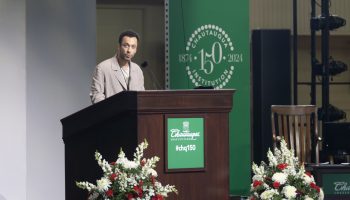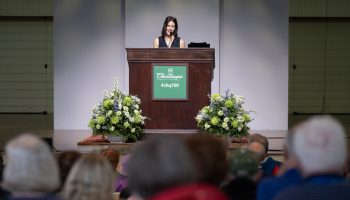The song of American urbanization is played on an accordion, “in and out, in and out,” said Derek Thompson, senior writer at The Atlantic.
“Americans compressed themselves into urban areas in the early 20th century. And then by mid-century, many white families were fanning out to the suburbs,” Thompson said. “Then in the early 21st century, young people rushed back into downtown areas — but the next few years, I think, American cities will exhale more residents who have moved to smaller metros and southern suburbs.”
American cities will not be the same after the COVID-19 crisis, according to Thompson: fewer tourists, less diverse food, maybe safer and healthier and less nightlife. Many people who moved into expensive downtown areas may also move.
“But then something very interesting will happen — the accordion will constrict again and American cities will have a renaissance of affordability,” Thompson said. “In the decade after the Great Recession, American cities became really popular.”
Thompson is the author of Hit Makers: The Science of Popularity in an Age of Distraction, which explores how blockbuster success is created through a mix of power, networks and other factors, and the host and founder of the podcast “Crazy/Genius.” On July 10, he presented his lecture, “How COVID-19 is Reshaping Our World,” as part of the Chautauqua Lecture Series on CHQ Assembly. This was the last presentation in Week Two’s theme of “Forces Unseen: What Shapes Our Daily Lives.”
Thompson said that large businesses are getting larger due to the pandemic. These big companies, such as Walmart and Amazon, have several advantages over smaller competitors: more cash reserves, a closer relationship with the government and banks that are more likely to bail them out first. Thompson thinks that these big companies will do a disproportionate amount of hiring after the pandemic.
Early in the crisis, New York Gov. Andrew Cuomo called COVID-19 “the Great Equalizer.” Thompson disagreed: “It is a toxin for the underdogs and a steroid for the big dogs.”
Thompson said that immigrants start companies at much higher rates than people born in the United States, and are twice as likely to create small businesses like restaurants and retail outlets — the “underdogs” in the economy. With many countries closing their borders and barring travelers from different countries, global immigration may decline in the next few months or years.
“American cities in the medium run will just get a lot more boring,” Thompson said.
American consumers are now spending ¼ of their money through online retailers, a rate that was projected to be reached in 10 years, according to Thompson. Oddly, in the 19th century, families who lived on farms would often order all their desired goods by mail from Sears — so now, Thompson said, the American consumer is “both being pulled forward and thrust backward hundreds of years at the same time.”
Restaurants have seen a “reckoning” that is similar to the Prohibition Era in the United States. Without alcohol, hundreds of fine-dining establishments closed down in those years, but the total number of restaurants tripled, according to Thompson, mainly due to diners that appealed to children’s palates with hotdogs, hamburgers and milkshakes.
“For decades, you could argue prohibition has this fascinating effect on our palates. It infantilized the American palate, making every meal fit for a kid,” Thompson said. “Over the past few decades, U.S. restaurants have emerged from that muck, that doldrum of mediocrity, and become rather relatively world class.”
But COVID-19 has brought on a delivery-first style to every restaurant. Many entrees, especially expensive ones, are not made to sit in a car and then in a microwave. Because of the shift to delivery and take-out, Thompson said “the American diet 100 years ago after prohibition is going to stage a triumphant, or perhaps not so triumphant, recovery. Burgers, pasta and Chinese food are going to take over our palates again.”
The American worker has also experienced a dramatic shift. Since the invention of the personal computer, Thompson said that jobs were predicted to move out of the office. The pandemic forced tens of millions of Americans to work from home, and Thompson said that white collar workers, in fields such as financing, law and marketing, are much more able to work from home. This ability to work from home could mean that many workers move out of cities, and into suburbs.
The lecture then transitioned into a live Q-and-A with Vice President and Emily and Richard Smucker Chair for Education Matt Ewalt. One of the first questions asked was how the pandemic has affected the arts.
Thompson was an actor before he became a writer, and worked in professional theater until he was around 23.
“I have unbelievable fondness for the arts in general, but theater specifically. And I’m devastated by what I see here,” Thompson said.
He said that a person cannot have a normal theater or movie experience when there is a live outbreak in the area, but two positive caveats exist. One, people can practice social distancing in a theater, and two, people are not talking like they would in bars, which are some of the most dangerous places to be in.
Live theaters for the actors pose a unique problem; they are intimate.
“What is Romeo and Juliet without kissing?’ What is Oklahoma! without dancing and people hooking arms? It’s very difficult to imagine a really, really safe way that you can rehearse complex plays with lots and lots of people,” Thompson said.
The next question was if there was a reason — other than leadership or preparedness — for why America has been especially susceptible to COVID-19.
“I think this has been a rather vast institutional failure and then you have the institutional failures in the individual states,” Thompson said, and his working theory is that the U.S. is in a bad position because “we thought we escaped history.”
In the last 15 years, countries such as Japan, South Korea and Taiwan experienced SARS, H1N1 and MERS, and rewrote their laws, changed regulations and taught citizens what to expect. This is part of the reason, Thompson said, that no one in Vietnam, a country with 80 million that borders China, has died of COVID-19.
“It might sound unsatisfying, but I do think it’s a huge part of it. We stopped learning. We are obsessed with, for a variety of reasons, the anxieties of the late 20th century,” Thompson said. “Police (are policing) the streets, as if we’re experiencing the kind of urban crime that existed in 1990. That no longer exists, but there still are way too many police murders.”
The last question from Ewalt was what questions are keeping Thompson inspired, and what he may work on in the near future.
Thompson is most interested in what makes some communities so ready to respond to crises, and others unable. After the Chicago fires in 1871, the U.S. built back its second-biggest city and invented skyscrapers. When New York City was hit with a blizzard in 1888, it was rebuilt with a subway.
“We weren’t hamstrung by the inability to build in the past. That is a muscle,” Thompson said. “That is atrophied in modern leadership, and I’m interested in what is that muscle? What does it take to build it back and why is it atrophied?”





